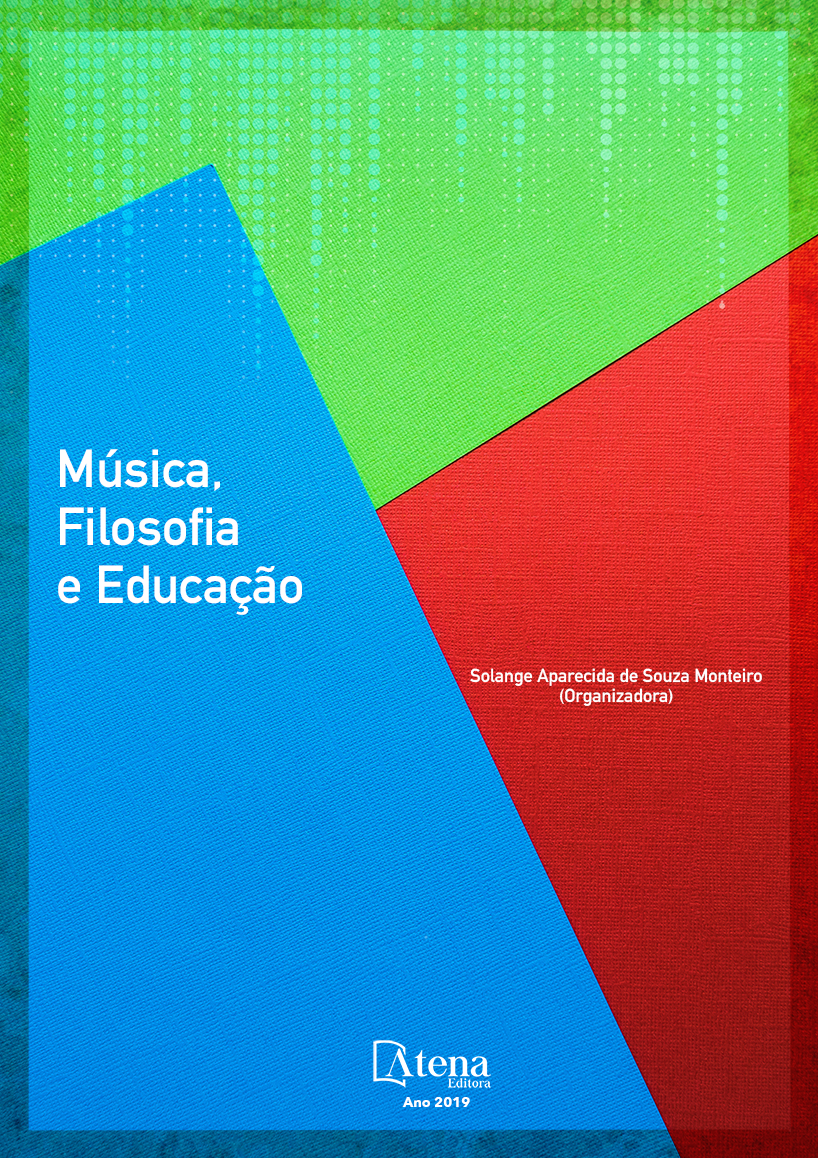
EDUCAÇÃO MUSICAL E HABILIDADES SOCIAIS
A música como arte e ciência tem
importante papel de inclusão, promovendo
habilidades sociais e prevenindo problemas
de desenvolvimento social, aprendizagem,
psicomotor e cognitivo. Este estudo investigou
o efeito da educação musical no repertório de
habilidades sociais em crianças expostas e não
expostas à educação musical. Foram avaliadas
80 crianças, entre oito a doze anos, ambos os
sexos, divididos em dois grupos: 40 alunos com
educação musical (experimental) e 40 alunos
sem educação musical (controle). Para coleta
dos dados foram utilizados os questionários
do Sistema de Avaliação de Habilidades
Sociais (SSRS), versão pais e professores. Os
resultados indicaram diferença estatisticamente
significante nas crianças expostas à educação
musical, evidenciando que houve melhora no
repertório de habilidades sociais envolvendo a
responsabilidade, o autocontrole; afetividade;
cooperação; desenvoltura social; civilidade
bem como diminuição dos problemas
de comportamento, especificamente da
hiperatividade. Concluímos que crianças
expostas à educação musical apresentaram
melhora significativa em seu repertório de
habilidades sociais e competência acadêmica,
quando comparadas a crianças que não foram
expostas a educação musical. A estrutura da
intervenção para a identificação dos elementos
componentes incluindo a organização do
ambiente físico e interativo, tipos e qualidade
dos estímulos e as contigência estabelecidas é
o fator primordial para que a educação musical
tenha um resultado positivo.
EDUCAÇÃO MUSICAL E HABILIDADES SOCIAIS
-
DOI: 10.22533/at.ed.0461050220
-
Palavras-chave: Educação Musical; Musica; Habilidades Sociais; Desenvolvimento.
-
Keywords: Musical Education; Music; Social skills; Development.
-
Abstract:
Music as an art and science
have an important role of inclusion, promoting
social skills and preventing problems of social,
psychomotor and cognitive development.
This study investigated the effect of music
education on the repertoire of social skills in
children exposed and not exposed to music
education. Eighty children, aged between 8 and
12 years old, of both sexes, were divided into
two groups: 40 students with musical education
(experimental) and 40 students without musical
education (control). Data was collected from
the parent and teacher version of the Social
Skills Assessment System (SSRS). The results
indicated a statistically significant difference in the children exposed to musical
education, evidencing that there was improvement in the repertoire of social skills
involving responsibility, self-control, affectivity, cooperation, social resourcefulness,
civility, as well as a decrease in behavioral problems, specifically hyperactivity. We
conclude that children exposed to music education presented significant improvement
in their repertoire of social skills and academic competence when compared to children
who were not exposed to music education. The structure of the intervention for the
identification of the component elements including the organization of the physical and
interactive environment, types and quality of the stimuli and the set contingency is the
primordial factor so that the musical education has a positive result.
-
Número de páginas: 15
- Dagma Venturini Marques Abramides
- Paula Martins Said


